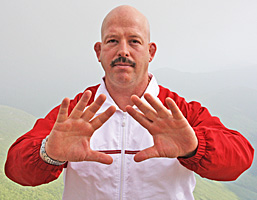A man recently told me that he wants to feel proud of himself, but he currently doesn’t.
Even though he’s accomplished a lot in his life, he thinks he should feel proud.
What do you think I told him?
Well, I didn’t tell him to focus on feeling proud. I didn’t tell him that he needs to love himself more.
Instead, I told him that his desire to feel proud of himself is a distraction. I told him that I give zero thought to whether or not I feel proud of what I have accomplished.
Gratitude, yes.
When I create a result, when I accomplish a goal, I am grateful and appreciative. I take a moment to pause and acknowledge the reality that I brought something into being that was nothing more than an idea not that long ago.
But the key is this: Tomorrow will be here sooner than we expect, and if you’re sitting around not feeling good about yourself, it is NOT because you don’t have enough pride or self-love. It’s because you’re not creating something NEW… NOW, in this moment.
Regardless of what you’ve created in the past, regardless of how proud you might have felt before, if you are not consciously creating something new on a daily basis, if you’re not moving forward in life, then the demons of self-doubt, worry, fear and self-loathing come into your life and hold you back.
When this happens, you might think that the “fix” is to focus on feeling proud of yourself. Sure, you can focus on feeling proud, but this akin to putting medicine on a wound that isn’t there.
The wound you want to address is the one that is sitting on its ass, not moving forward, not accomplishing something new.
The moment you begin creating something new, you put yourself into a different mindset, a different realm, a different universe.
You naturally begin to feel good even though you are not focusing on it.
You get into the zone, into a creative flow. You begin enjoying life and yourself by taking the focus off yourself and putting it on something “out there” that you want to bring into your life.
It could be something as simple as gardening. It could be cleaning up your disorganized home or office.
It could be learning how to write cursive, instead of printing in block letters.
Or learning to draw something better than stick figures.
It can be writing a real letter to a friend, or putting together an article or book.
It can be learning to play a musical instrument. Or learning woodworking skills. Or martial arts.
And yes, it can be learning how to increase your income by upgrading your existing skills.
The Creator gave you the power and the ability to create. Are you using this power, or are you sitting around looking at your eye-fone all day?
The more time you spend on your devices, especially on social media, the less power you will feel you have to create the results you want in your life.
But the moment you put the devices in another room and shut off the television, the desire to create something new begins to grow within you. You WANT to do something else, something MORE, something where you, without understanding how it works, feel creatively alive and happy.
Get in the habit of creating something new each day. It does not need to be something BIG. It could take you 5-10 minutes. Then again, it might take you a few hours. It might take all day.
Regardless of how long it takes, when you are busy “doing the thing,” you will come to realize a profound difference in how you feel. Before you were trying to feel good about yourself, to feel proud of who you are. Yet now, when you suspend this idea of feeling proud of yourself, when you focus on getting something accomplished, you activate the feel-good chemicals in your brain and body.
Just as the only place where success comes before work is in the dictionary, the only place that feeling good comes before creating something is lala-land.
As for tools that can help you along the path, the BEST material I have ever found for activating this CREATIVE MECHANISM within yourself, are the exercises in the Zero Resistance Living course.
You’ll learn to use the power of DAILY GOALS in a way you’ve never done before – and as a consequence, you will start to get the results you want in life.
Will these results make you feel good about yourself?
For today, yes.
Then what?
You rinse yourself off, you clear the calculator – and you repeat the same type of creative process every single day.
It will become a habit for you – and when it does, look out world.
You are on a roll.
Grab a hold of Zero Resistance Living NOW and keep me apprised of how you are getting along.
By the way, the current price for this course will be going up in a day or two. So jump on this offer immediately.
Matt Furey

